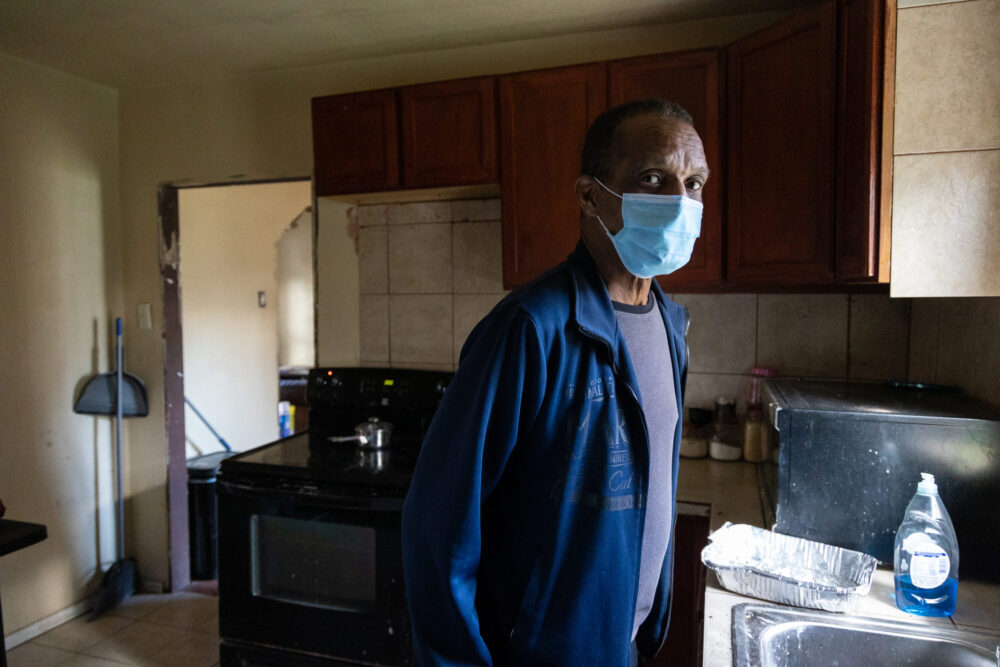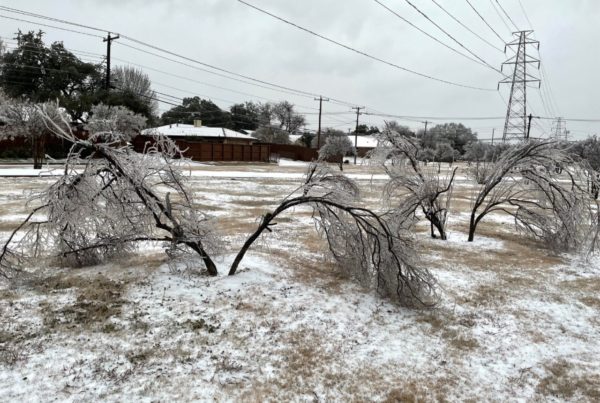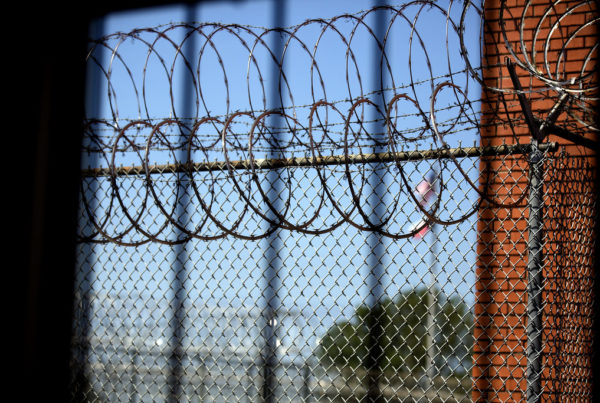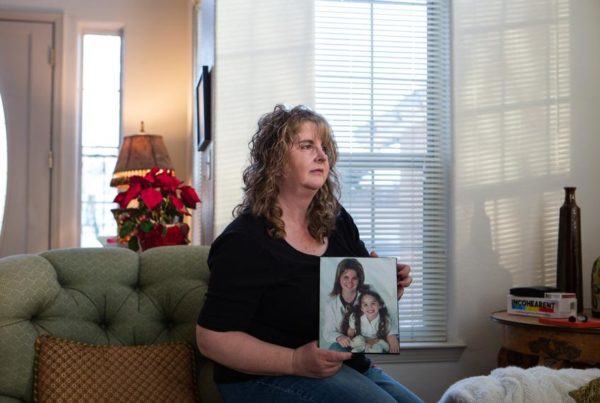When Hurricane Harvey hit James Burford’s home in Northeast Houston in August 2017, he was already too familiar with storm damage.
He said he first had to do repairs after Tropical Storm Allison in 2001. Then Hurricane Ike in 2008 damaged his roof and windows. Harvey made all of that worse.
“Harvey did more damage to some of the repairs that I had made previously,” he said. “It’s like three steps forward and two steps backwards. That’s kind of the predicament I’m in now.”
During Harvey, Burford said water got underneath the floors and leaked through the roof he had previously patched, causing black mold to grow on the ceilings.
He didn’t have homeowners insurance and was denied emergency relief from FEMA. Fe did what repairs he could, but more work is needed.
So about two years ago, when the city reached out about the federally funded Harvey Homeowner Assistance Program, Burford applied. Then the city and the State of Texas started fighting over who should pay out the money, blaming each other for ongoing delays. Eventually, the Texas General Land Office took over the program in 2020.
Once the GLO took over, Burford felt like he had to start all over again with paperwork. In the meantime, he has temporarily moved somewhere else because he’s worried about how the mold on the ceiling could affect his daughter’s health.
“I’m kind of stuck in a holding pattern now,” Burford said. “There’s nothing else I can do.”
It’s been nearly five years since Hurricane Harvey dumped more than 50 inches of rain in some parts of Houston, and over two years since Burford applied for government assistance. And he’s just one of thousands of applicants still waiting for help to repair their homes – and who might not get it.
The Harvey Homeowner Assistance Program closed to new applicants on Dec. 31, and officials say there likely won’t be enough money to help everyone who applied.
The GLO said it received a total of 12,778 applications from the Houston and Harris County combined. The bulk of those — roughly 10,000 — are from the city.
But the GLO estimates there are only enough federal funds to assist about a quarter of the total applicants: some 1,700 households in Houston and 1,100 households in Harris County.
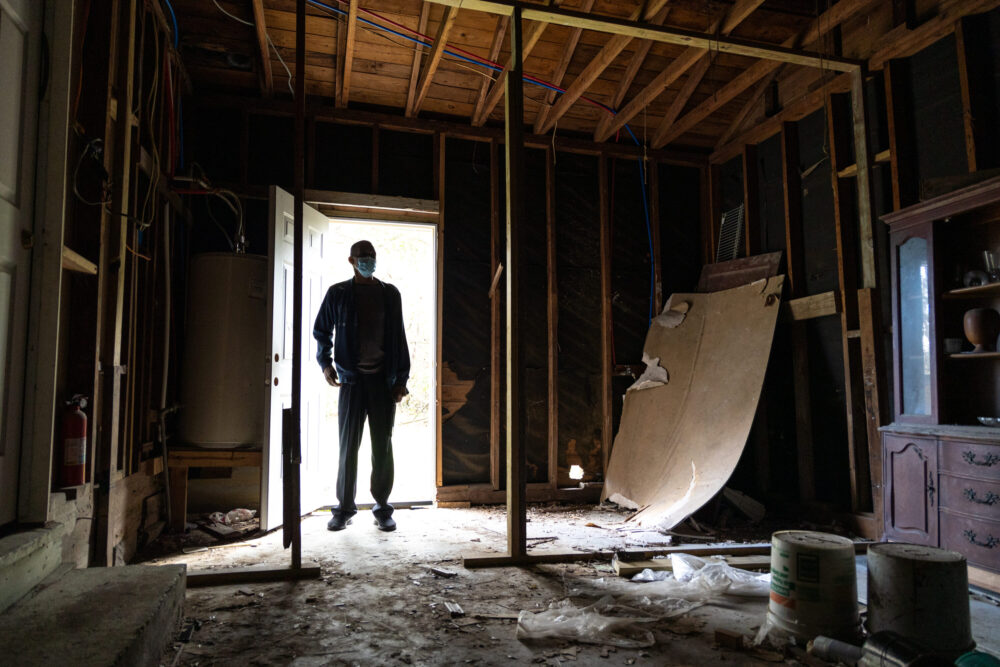
Photo by Lucio Vasquez / Houston Public Media
Brittany Eck, a spokeswoman with the GLO, said those applications include households that are ineligible or no longer interested.
“Many of these (applications) have been incomplete, duplicative or ineligible,” she said. “And so we do have a fallout rate greater in the Houston and Harris county area than in the 48 other counties that the Texas General Land Office was administering the program in directly from the beginning.”
Many of the applicants that were transferred from Houston’s program to the GLO have been unresponsive, she added.
“Many of them had either moved on, had done repairs themselves and no longer wanted to participate, or they did not respond to our request for them to contact us,” she said.
The GLO anticipates having leftover money from Harris County’s program, and it’s possible that it could be used to help additional applicants in the Houston program, according to Eck.
Three years after Harvey, the city had only helped 156 participants in the assistance program, according to a recent audit from the HUD Office of Inspector General. The city has blamed its slow rollout on extensive documentation requirements from the GLO and disagreements with the agency over program requirements.
After a lawsuit that went all the way to the Texas Supreme Court, the GLO took over the program. So far, the agency says it’s approved a total of 1,421 homeowners for assistance in Houston and Harris County, with construction complete on some 390 homes.
Community members and advocates attribute the slow relief rollout in part to the political back and forth between the Democratic-run city and the Republican-led GLO.
“I do think that the political fight between the city of Houston and Mayor Turner and the state of Texas and Commissioner George P. Bush has actually been a detriment to these programs and the recovery of the Houston and Harris County survivors,” said Julia Orduña with the nonprofit Texas Housers.
But Orduña said the political fighting was just another delay in a process that’s been plagued by poor communication and extensive paperwork. An average application requires 80 documents before it’s complete, according to the GLO.
“It has been our experience that applicants are responsive, and they submit documents, and then they don’t hear from their case manager for weeks to months,” said Orduña. “Then when the case manager finally gets back to the application, they turn around and say, well, something else is missing. So the paperwork and the documentation in itself is a very big barrier.”
Case in point: The GLO told Houston Public Media that James Burford’s application was inactive because he had never responded to a request to submit a required property tax document.
That was news to Burford, who pulled up an email he sent to his case manager back in August with what appeared to be the required document.
“I did submit that to them,” he said. “This really perturbs me. I have tried to respond to everything because it’s important to me.”
Burford said he’s now back in touch with his case manager and he feels “cautiously hopeful” he may still get help repairing his home.
“Hopefully I can get this house straightened out and I can move back here,” he said. “Then I’ll have a secure place to stay, me and my daughter.”


